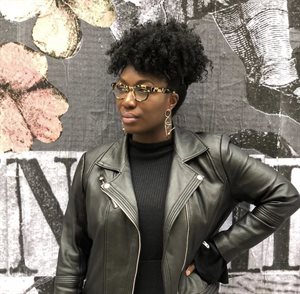Decolonising international development

International development practitioners and organisations should question how they can decolonise their work by adopting African-led solutions, says Ivorian-American Stephanie Kimou, founder and principal consultant at Population Works Africa.
Kimou was the international keynote speaker at the Trialogue Business in Society Virtual Conference today (14 October). Decolonising international development is anti-racism work and means working with communities and not for them, said Kimou.
Decolonising international development can be defined as:
- Understanding the racial and colonial histories and trauma of the countries that you are working in. “Often the space held by white-led development institutions will perpetuate that history and that trauma.”
- Dismantling racist and problematic development norms, such as using generic and harmful “poverty porn”, often images of African women, to raise money not for the people in those photos, but for the institutions and their operating costs.
- Honouring locally-rooted expertise, not because we want to use the experiences of people, especially African women, for digital campaigns and communications strategies, but because we are reading the work of African people, being inspired by their art, and citing African research.
- Making space for holistic and genuine local indigenous ownership and leadership as the standard and not the exception.
International institutions that claim to be in the service of African people should consider three things, said Kimou – dismantling the “white gaze”, fostering more transparent partnerships, and centering on local expertise and leadership.
Dismantling the white gaze
This is the idea that everything we do in the international development sector prioritises the experiences and desires of white people, or white-led power structures. This shows up in three ways that we need to be aware of:
- Monitoring and evaluation – can we expand our measures of success outside of what white power structures believe is true, and orient that definition of success, impact and goodness towards what the communities are saying?
- Fundraising techniques like harmful 'poverty porn’; and
- Storytelling and digital media: How we tell stories, especially of African women, can often silence their own narratives and replace them with whatever the white gaze thinks is most pertinent and important at that time.
“I really think a tactic to decolonise international development is to ensure that we are not prioritising the needs and desires of people outside the communities we say we serve. For a lot of us who work in the sector, that means not prioritising what the white gaze would want, but really thinking, what do these communities want from us, how can we resource them?
Fostering more transparent partnerships
“This means relinquishing control of the money we often dangle over the heads of marginalised communities of women and children in the communities we seek to serve and support.”
It also avoids making the final decisions on behalf of anybody. Instead we should aim to work in solidarity with communities, not stepping in front to represent them, but supporting them from the back and ensuring that we are resourcing them as they wish to be.
“Really consider, is there space for you to relinquish power that was never owed to you, because you may not sit in the communities you seek to serve?”
Centering on local expertise and leadership
In terms of personal activism, rather than elevating the resources, work and movement-building of those outside the community, follow and cite more African researchers and writers, especially African women, advised Kimou.
“As we build trust as the international development community, with those people, especially African women and children that we seek to serve, I think we will see interventions that are more robust, more locally rooted, and more honestly rooted in love and transformation than international development norms, which are often ‘saviourist’ norms.” (Many international development people want to enter Africa to ‘save’ it.)
“I really implore all of us to challenge ourselves to think about what is at stake if we don’t decolonise international development like we see it today. What will the communities we say we care about, lose if we continue to work in the ways we have been, which is often silencing and marginalising to the people that we say we love the most?”
- Op-Ed: How companies can strengthen democracy in South Africa 1 Apr 2025
- Rethinking CSI to meet the collaboration imperative 24 Mar 2025
- New Trialogue research reveals leaders in corporate giving 4 Dec 2024
- FirstRand Empowerment Foundation shares agri vision at Trialogue Business in Society Conference 2 Sep 2024
- Beyond Mandela Day: the power of employee volunteering programmes 16 Jul 2024
TrialogueTrialogue is one of only a few consultancies in South Africa that focus exclusively on corporate responsibility issues. Over 25 years of experience puts us at the forefront of new developments in sustainability and corporate social investment (CSI). |